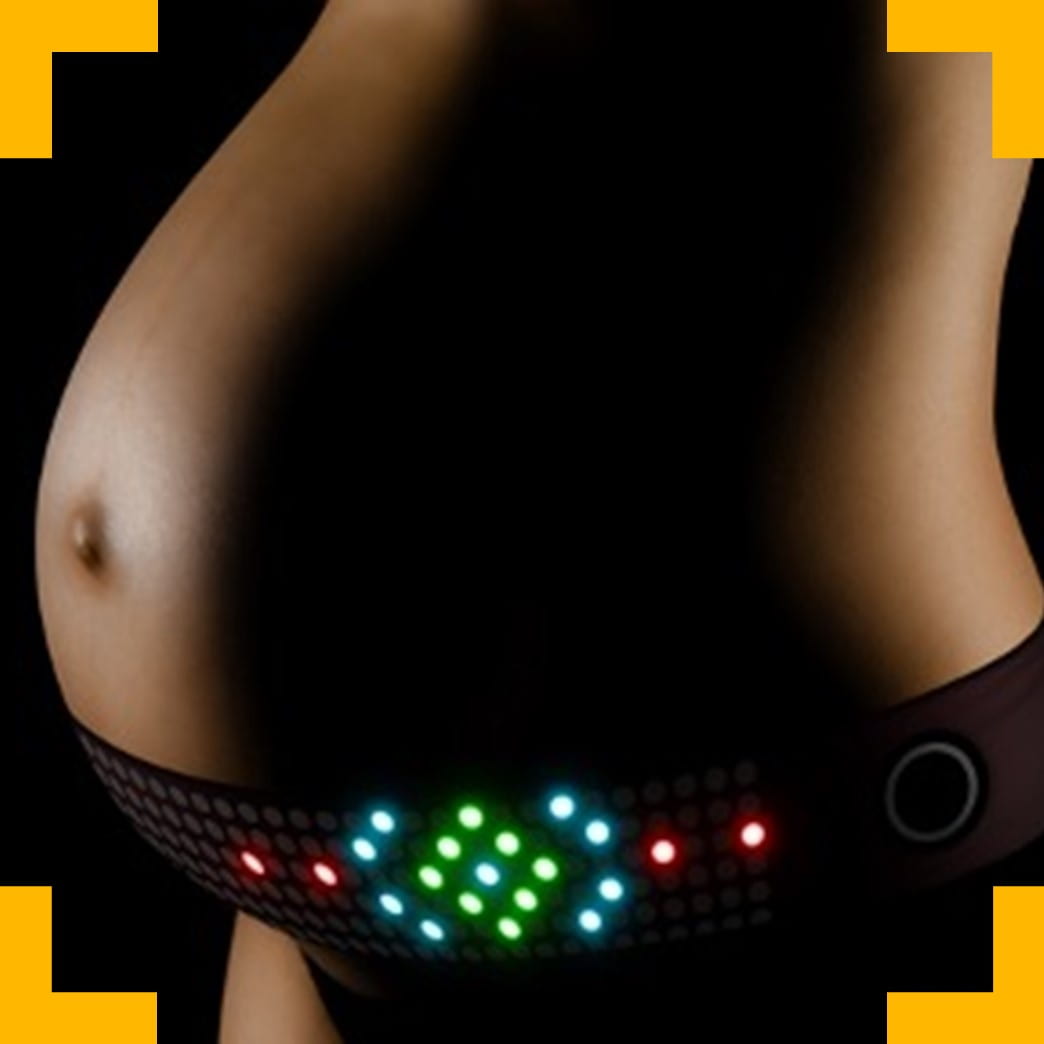FirstTalk Introductions: Towards Enabling Mother-Child Interactions in Utero
How might technology be used to deepen the connection between parents and their babies, while they are still in the womb? This Ideas Exchange brings engineers and social scientists together to explore the potential and challenges of using wearable robotics to enable in utero interactions.

What did the project involve?
This research team envisaged the creation of a wearable device for pregnant mothers that will interpret their baby’s movements to create patterns of light, colour changes and sound. How could such a device enable a deeper connection between parents and their babies before birth? What implications and opportunities might wearable technology offer for pregnancy?
This initial stage of the FirstTalk project brought together the research team of social scientists and roboticists to focus on interdisciplinarity, which allowed the team to expand their knowledge of other disciplines and uncover the potential and challenges for co-produced research, both technological and ethical. The team invited midwives, NCT antenatal teachers and parents to share their views on wearable technologies and the role of interactions with babies during pregnancy. They sought to explore what kind of wearable device might be of interest. This allowed the researchers to solidify the research question and analyse whether additional knowledge and skills will be required.
Who are the team and what do they bring?
- Jonathan Rossiter (Engineering; Bristol Robotics Laboratory) has extensive experience in wearable and human-oriented soft robotics and natural physical interaction. Jonathan will develop a safe and comfortable mother-child interaction product.
- Maria Fannin (Human Geography) will bring to the project her expertise on social and cultural aspects of pregnancy, and insights into feminist perspectives on how other technologies have been put to ‘social’ use during pregnancy.
- Elena Giannaccini (Robotics, University of Aberdeen; Bristol Robotics Laboratory) brings her expertise in designing and building soft robotics prototypes for medical applications.
- Heather May Morgan (Applied Health Sciences, University of Aberdeen) is an expert in digital health technologies and qualitative methodologies. Heather’s research includes projects with pregnant women, their partners and new parents around health behaviours, as well as couples’ uses of fertility tracking apps and devices as they plan parenthood.

